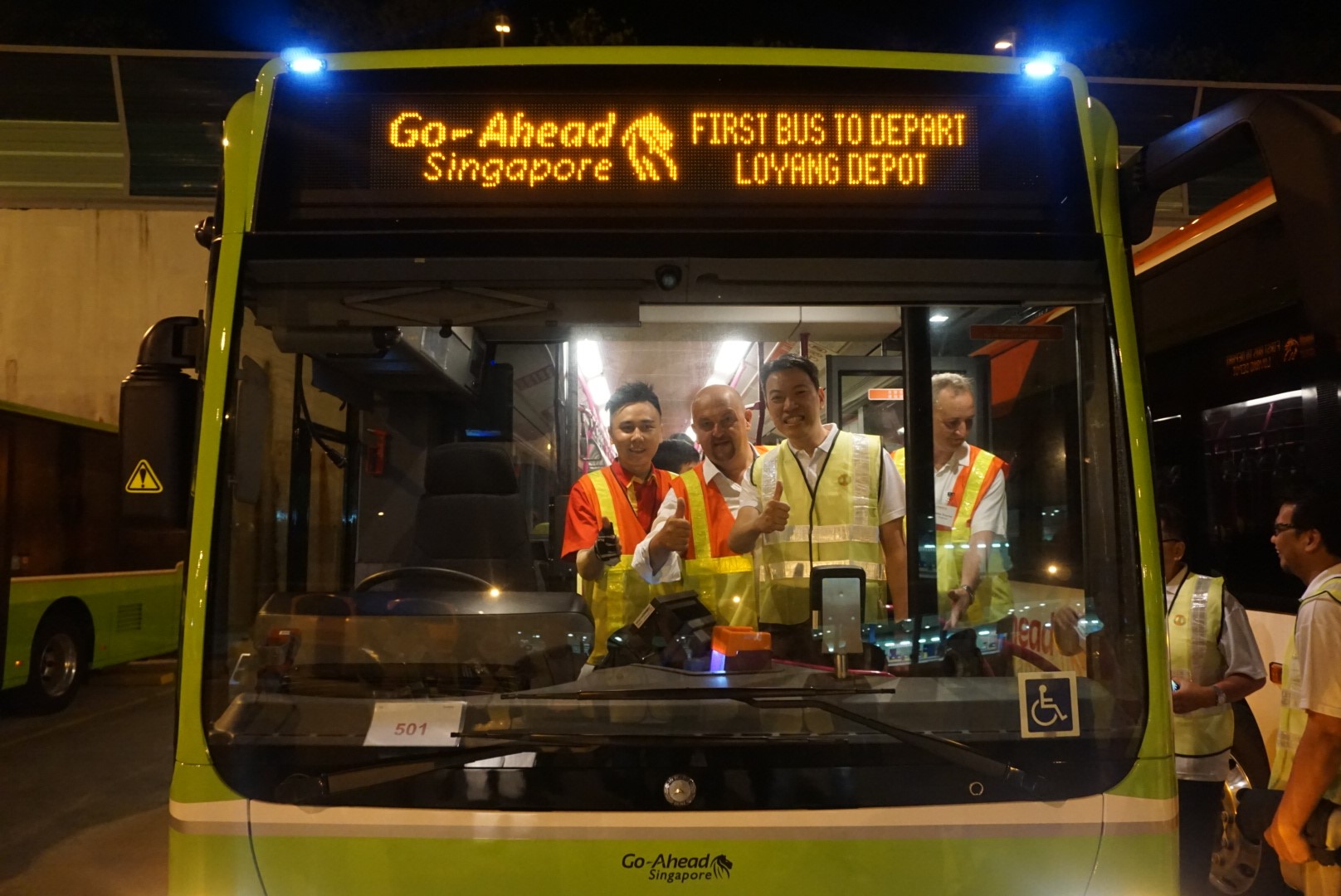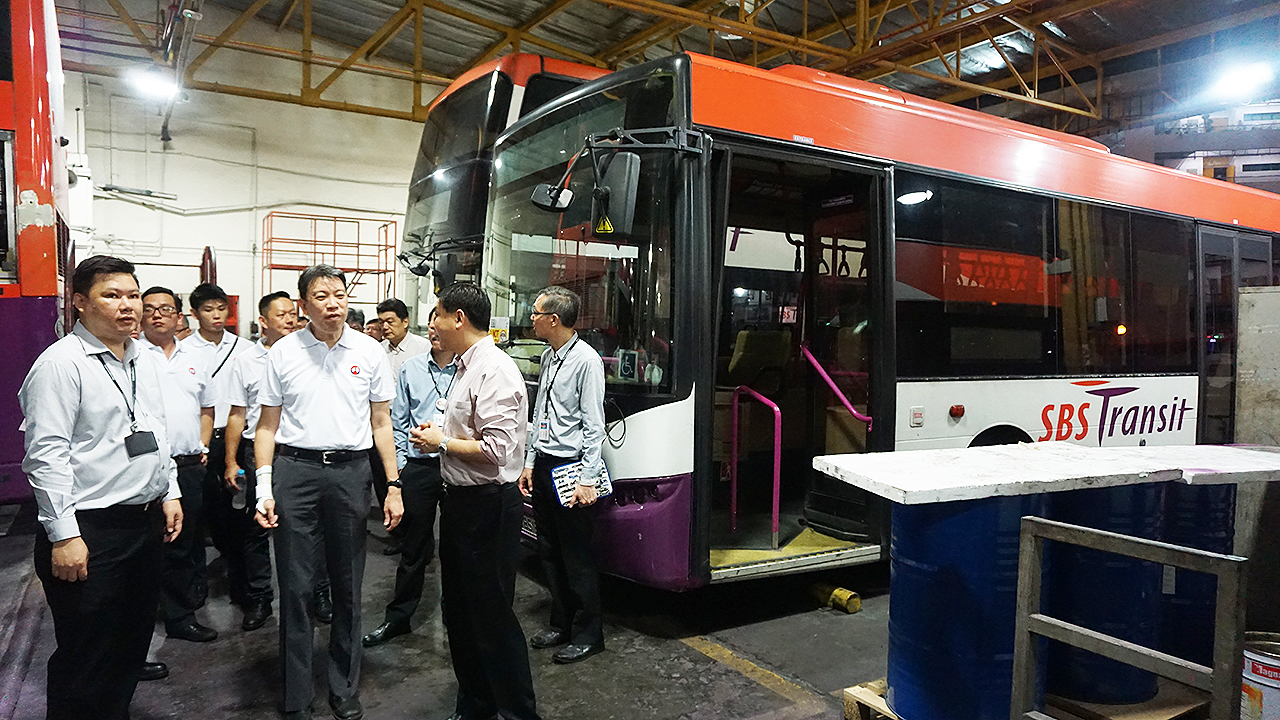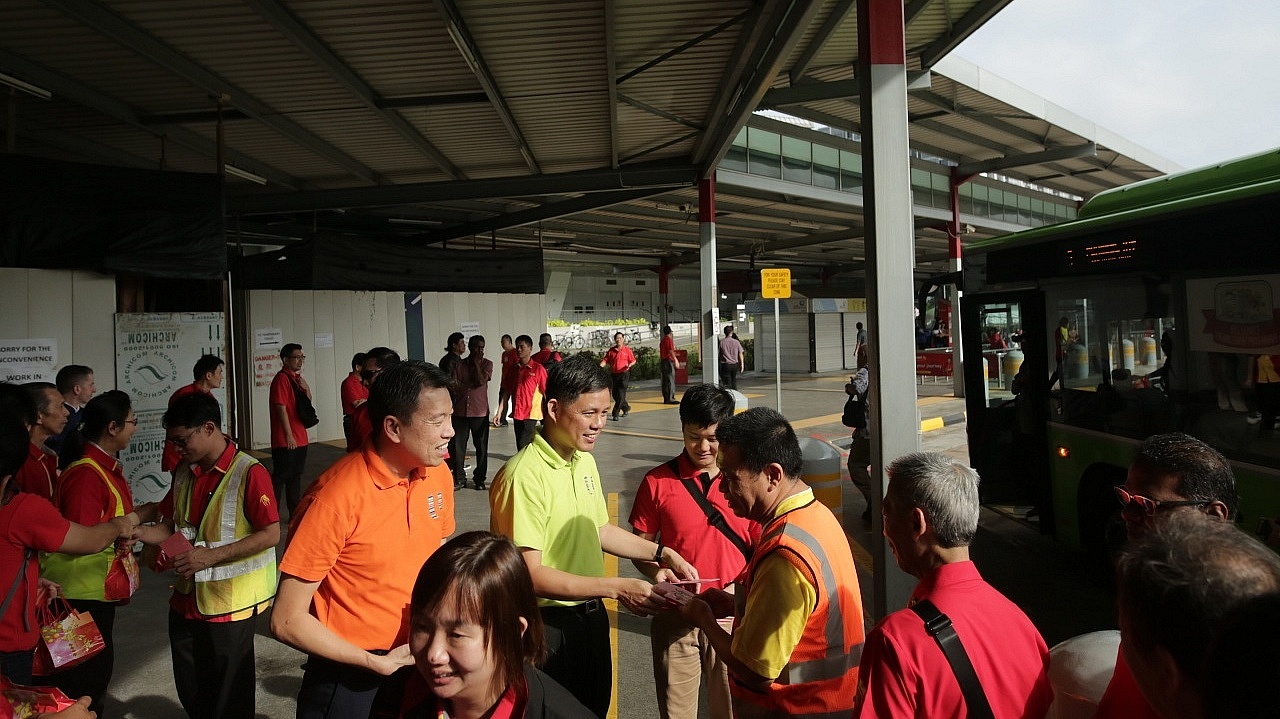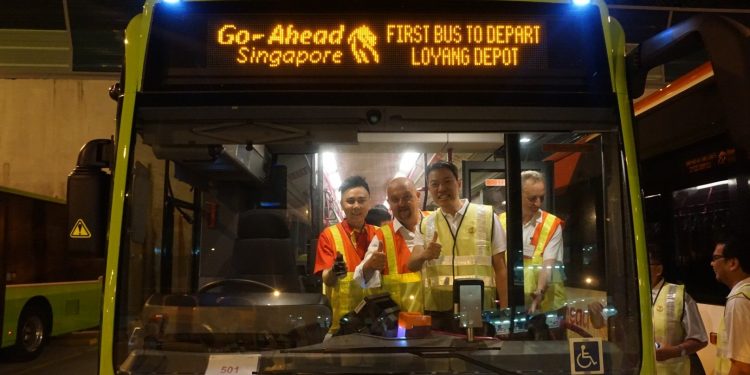
Commuters’ satisfaction with public transport hit a nine-year high in 2016. Specifically, satisfaction with bus services rose to 96.7 per cent from 90.7 per cent in 2015. This could be attributed to the Bus Contracting Model (BCM) which had introduced a slew of performance standards that public bus operators must now meet.
Consequently, our bus captains are the front liners who carry the responsibility of fulfilling these standards every day. In doing so, they face some real challenges, and it is important that the industry stakeholders such as the Transport Ministry, public bus operators and our commuters give them the fullest support.
Meeting Timing Requirements for First/ Last Bus and at Checkpoints
While most of us are still asleep, our bus captains are already up before sunrise, to commence the first bus services at the various bus interchanges.
Our bus captains are required to abide by specific arrival timings at the bus stops so that you and I can get to school, to the market or to our workplace on time. Unknown to many, they cannot arrive early at the bus stops and cannot be late for more than five minutes! The same applies to the last buses leaving the interchanges. This minimises the possibility of commuters missing the bus services.
During my ground visits, bus captains told me that following the BCM, there is now an increase in the number of bus stops designated as checkpoints where bus captains must meet timing requirements too. While bus captains understand that the intent of such requirements is to help commuters anticipate when the buses arrive and to ensure punctuality of the buses, bus captains feedback that it could be very stressful.
I can imagine the stress. At times, I would arrange to fetch my child at an agreed location at a specified time. Sometimes, I would arrive late due to bad traffic and weather conditions – circumstances beyond my control. Here, I am talking about one pick-up stop. The stress level of our bus captains is multiplied, given the multiple checkpoints within a single route.
Infrastructure is also a critical factor. Take for example this major bus stop situated within my constituency. It has a high traffic flow and is near roads that are often congested, particularly during the peak hours. It is also designated as a checkpoint.
This bus stop serves some 25 bus services but only has three bus bays for buses to stop to fetch/alight commuters. During peak periods, it would already be challenging for this bus stop to accommodate 25 bus services with only three bus bays. The problem is made worse if buses arrive at the bus stop ahead of time, and they are instructed by the Bus Operations Control Centre to stay at the bus bay till they are given the go-ahead to move off. This can cause a jam behind, especially for other buses which need to move into the bus bay to clock their required timing but are not able to, and be deemed late as a result.
Can the Land Transport Authority (LTA) review the first bus / last bus arrival timings, and the number of checkpoints along a bus route to take into consideration unpredictable traffic and weather conditions? I hope there can be some understanding and flexibility for our bus captains to navigate the bus journeys safely.
Running Time for Bus Captains to Complete Bus Journeys Not Dynamic Enough
Our bus captains are required to complete a bus journey within a stipulated ‘running time’. This usually means that they have around 2 to 3 minutes to travel from one bus stop to the next, notwithstanding weather and road conditions. This is like running an extended shuttle run, over and over again! It can be mentally exhausting.
When traffic is light, commuters have complained that they do not understand why the bus captains drive so slowly when there are no vehicles ahead. Well, the simple answer is that they are trying to keep within the running time, so that the bus arrives on time for those waiting at the bus stops.
The running time for bus captains to complete their bus journeys should be made more dynamic to accommodate peak and non-peak periods. Our Electronic Road Pricing (ERP) rates are adjusted quarterly to take into account the peak and non-peak periods like school holidays. With data analysis, can the LTA do likewise for our bus service running time?
Need to Improve Hardware like Bus Infrastructure and Operation Systems
Under the Bus Service Enhancement Programme (BSEP), we have seen an injection of more buses over the past years. Launched in 2012, the programme aims to add 1,000 new buses on our roads[2]. However, the current infrastructure, particularly the older bus interchanges, were not expanded to cope with the increase in buses. There are simply not enough bus parking lots at our interchanges. Bus captains now need to wait longer for available bus parking lots, which affects their rest time and the already-short layover time. I hope that that LTA would have plans to review and improve the current infrastructure at our interchanges.
Also, public bus operators are now required to use LTA’s Common Fleet Management System (CFMS)[3], which is supposed to provide a unified solution for operations control, fleet management and passenger information. During my visits to the Bus Operations Control Centre, the service controllers shared that the CFMS is not always synchronised accurately with the Driver Display Units (DDU) used by our bus captains in the bus. The CFMS may show that bus captains are late reaching the stops, while their DDU may show otherwise. As such, the bus captains sometimes receive conflicting instructions from the service controllers.
The National Transport Workers’ Union (NTWU) is working closely with the LTA and the public bus operators to improve the stability of the systems.

Raising Public Awareness
It is perfectly understandable that once on board, commuters hope to get to their destination in the fastest possible time – better still, if the bus can skip the rest of the bus stops along the way. But if you were the one waiting at the bus stop, you hope that your bus would arrive on time and would stop for you, especially the last bus!
Many are unaware that our bus captains need to abide by performance requirements while they are on duty, and that these requirements are in place to ensure that commuters can get on their transport and reach their destinations on time and safely.
We have heard of cases where bus captains are verbally abused or even assaulted while they are on duty. This must be stopped.
We hope that more commuters understand that our bus captains work hard to perform their duties, and the union aims to work with LTA and the public bus operators to raise public awareness of our bus operations. We also need to do more to protect our bus captains. The union will work with the public bus operator to lodge a police report for every case of assault against a bus captain. Investigation of all assault cases by the Police should be handled promptly and there should be strict prosecution of offenders.

Working Together for a Better Bus Ride
Our bus captains are doing their very best every day (and every night!) to bring us to our destinations safely and on time. They have a challenging task – navigating varying traffic and weather conditions, helping commuters on board the bus and making sure the service standards are met.
I ask for your support to ensure that our bus captains work in a safe environment.
Many of us who take the bus to school or to work often take the same bus at about the same timing every day. Similarly, our bus captains often drive the same bus service every day for many years. Do you know your bus captain?
Let us work together to achieve a better bus ride every day.
Melvin Yong
This is a post by Executive Secretary, National Transport Workers’ Union (NTWU), Melvin Yong. Any extracts should be attributed back to the author. 8 March 2017.

